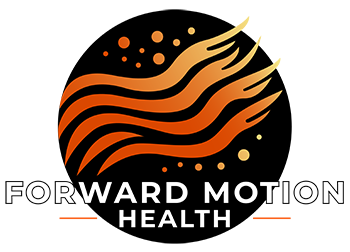In Texas, mental health therapy programs have grown significantly in response to the increasing demand for mental health services. These programs are designed to help individuals navigate the complexities of emotional and psychological challenges. It’s not weak to seek out mental health — it’s a courageous gesture and investment in your future and relationships.
Mental health is an integral part of this equation, as it affects our thoughts, feelings, and behaviors. A holistic approach to health recognizes that all these aspects are interconnected. Investing time in mental well-being leads to improved productivity, better relationships, and effective coping strategies during stressful times.
In a similar way, the health of the body can be highly influential in determining a person’s overall health. A balanced diet rich in fruits, vegetables, whole grains, and lean proteins fuels both body and mind, promoting energy levels and cognitive function. Research has shown that certain nutrients, such as omega-3 fatty acids and antioxidants, can positively influence mood and cognitive performance. Regular exercise not only improves cardiovascular health and strengthens muscles but also releases endorphins, the body’s natural mood lifters. This multifaceted approach to health is about healing the entire person, which is essential for living healthily with mental illness.
Types of Therapy Available at Forward Motion Health
Cognitive Behavioral Therapy (CBT) is one of the most widely practiced forms of therapy. It focuses on the relationship between thoughts, feelings, and behaviors, helping individuals identify and change negative thought patterns. Individuals learn to challenge irrational beliefs and replace them with healthier thoughts.
Through a structured framework, CBT enables individuals to develop skills that empower them to tackle everyday challenges. This makes CBT particularly effective for learning to live with conditions such as anxiety, depression, and panic disorders. As individuals make significant strides in overcoming their challenges, they can develop greater self-esteem and confidence. The skills learned during therapy are not only applicable to current issues but also equip individuals with tools to manage future stressors, promoting long-term resilience and emotional well-being.
Dialectical Behavior Therapy (DBT) was initially designed for individuals with borderline personality disorder, but it has since been adapted for various mental health issues. DBT combines cognitive-behavioral techniques with mindfulness practices to teach individuals emotional regulation, distress tolerance, and interpersonal effectiveness.
This therapeutic approach often incorporates skills training into individual therapy sessions. DBT encourages self-acceptance and emphasizes the importance of balance between acceptance and change. It also encourages resilience in stressful situations, helping to empower those with mental health conditions to tackle difficult situations with confidence.
Experiential therapy emphasizes the role of personal experience in fostering self-discovery and healing. This therapeutic method encourages individuals to express and explore their emotions through creative techniques such as art, drama, and music therapy. It may also involve in-person activities that involve the person doing an activity, sometimes in a group. These activities can include hiking, ropes courses, or other similar activities.
By engaging in expressive activities, individuals can uncover deep-seated feelings and experiences that may have been suppressed. This approach helps individuals gain insight into their issues, paving the way for emotional healing and personal growth. It can also be particularly effective for those who find traditional talk therapy challenging or unfulfilling.
Family therapy involves working with families to improve communication and resolve conflicts that may be contributing to mental health issues. It recognizes that mental health does not only affect the individual but also family dynamics.
This type of therapy can help to address specific problems, such as parenting challenges or substance abuse, and aims to promote healthier family relationships overall. By providing a platform for open discussions, family therapy can enhance understanding and facilitate healing for all members.
Group therapy consists of guided therapy sessions where several individuals facing similar challenges come together to share experiences, insights, and support. This format aims to foster a sense of community and shared understanding that can be profoundly healing.
Participants learn from one another’s experiences, gaining perspectives on their struggles while also recognizing that they are not alone. Group therapy can be geared toward specific issues such as addiction recovery, grief management, or anxiety disorders, and is often led by a qualified therapist.
Individual therapy provides a confidential setting for individuals to explore their thoughts, feelings, and behaviors with a trained therapist. This one-on-one relationship allows for personalized care tailored to the individual’s unique circumstances.
For individuals who undergo this type of therapy, there are many options available for treatment. Individual therapy can address a wide array of issues, from anxiety and depression to trauma and relationship problems. Techniques like CBT or DBT may be employed, depending on the individual’s needs. Individuals can work with their therapist to build strategies for coping, develop a deeper understanding of themselves, and work towards personal goals.
Motivational interviewing is an individual-centered approach to therapy, designed to help individuals with motivation by exploring and resolving ambivalence. Therapists work to create an empathetic environment where individuals feel safe discussing their motivations, goals, and challenges. The focus is on empowering individuals to take active steps toward their desired changes, often toward more healthy lifestyles.
Contact Our Montgomery Based Wellness Center
Receive Support for Mental Health at Forward Motion Health
Whether seeking therapy for anxiety, depression, or other challenges, Forward Motion Health provides a supportive environment where individuals can explore their feelings and develop the tools necessary for a healthier lifestyle. Contact us today to learn more.
